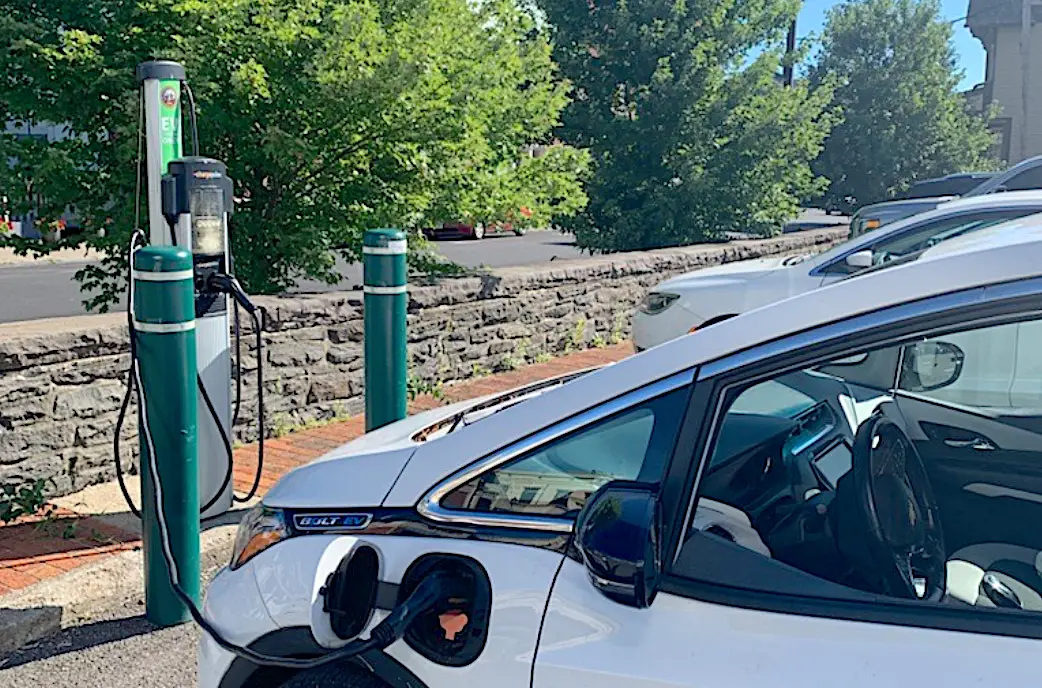Ulster County has launched a new program that will take $2.5 million in federal money provided to the county under the American Rescue Plan Act (ARPA) and award grants of up to $100,000 to municipalities to set up solar panels to generate electricity or electric vehicle (EV) charging sites, or both.
Awards are planned to be announced in August with each selected municipality eligible to receive a maximum of $100,000. The county’s grant must be matched by local spending on the projects. The county says that if all of the available money is not awarded it will offer another round of funding in the future.

Ulster said that sales of EVs in the county have more than doubled in the last year and are expected to account for the majority of vehicles on the road in the next decade. It told municipalities that investing in charging infrastructure is a commonsense step that governments can take now to prepare.
“Beyond the climate benefits, these investments make fiscal sense, reducing dependence on volatile fossil fuel prices and providing cost savings on electric bills (in the case of solar) and on fuel and routine maintenance costs (in the case of municipal electric vehicles). Investing in EV charging can also provide an economic and tourism development benefit if located conveniently in a business district,” the county told its municipalities.
“There has never been a more opportune time for local governments to make clean energy investments,” said County Executive Jen Metzger. “Beyond the climate benefits, these investments make fiscal sense, reducing dependence on volatile fossil fuel prices and providing cost savings on electric bills, in the case of solar, and on fuel and routine maintenance costs, in the case of municipal electric vehicles.”
Solar panel grants can be used to pay for design, engineering, the solar panels, additional equipment, wiring, and construction. Grants for EV charging stations can be used to pay for EV charging equipment, site preparation, supplies, installation costs, signage and electrical service costs.
The county requires that all of the solar and EV charging projects it funds must be municipally owned. It says that EV charging facilities may be installed on property that is not municipally owned provided a long-term agreement or lease of at least ten years with right of renewal is secured with the property owner.






















